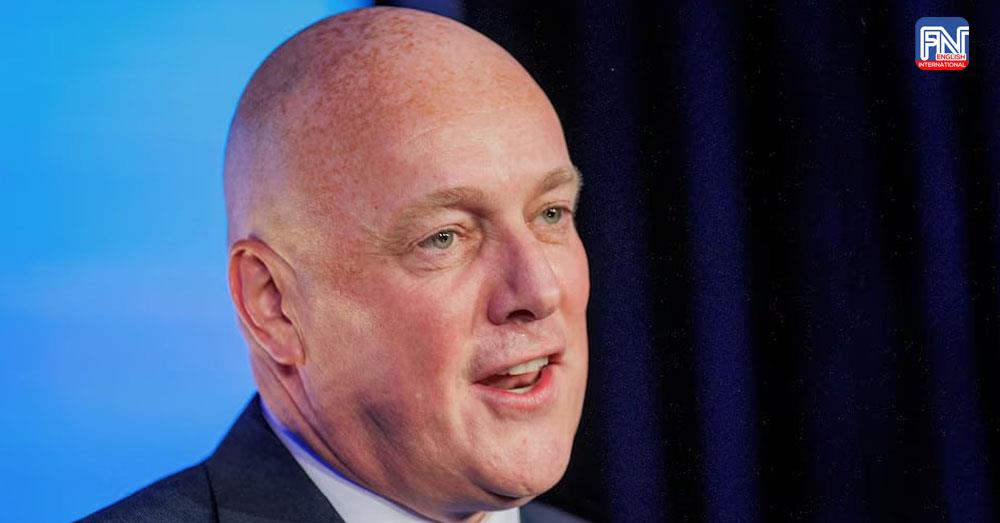WELLINGTON, Mar. 19 (Reuters) - New Zealand’s prime minister Christopher Luxon intends to travel to China in the coming months following meetings with China’s Foreign Minister Wang Yi in New Zealand this week.
Luxon on Monday, along with Foreign Minister Winston Peters and Trade Minister Todd McClay met with Wang, who was the first high ranking Chinese official to visit New Zealand since 2017.
Peters said in a briefing to media on Tuesday that meetings with Wang had been “very convivial, very friendly” and that McClay would visit China next month and Luxon is “going not long after that.”
A spokesperson for the Prime Minster said Luxon had been invited to visit China, and the Chinese leadership invited to New Zealand but “nothing had been confirmed yet.”
If confirmed, this would be Luxon's first visit since he was elected as Prime Minister last October, however Chris Hipkins travelled to China as Prime Minister in mid-2023.
New Zealand has maintained a cordial relationship with China even as relations between China and other western partners have faced challenges. However, New Zealand, long seen as a moderate or even absent voice on China in the Five Eyes intelligence-sharing alliance, has increasingly spoken up about what in considers to be concerning actions by China.
New Zealand has raised concerns about China’s signing of a security agreement with the Solomon Islands, as it is counter to agreements between Pacific countries to work together to meet the region's defence needs rather that using outside partners.
Peters said he had spoken to Wang about the need for countries outside the Pacific to respect those agreements.
“We have a set of rules in the Pacific that need to be honoured,” he said he told Wang.
Peters said that Wang had raised concerns about New Zealand’s possible involvement in the AUKUS security pact but he did not think that New Zealand becoming involved would put at risk the country’s trading relationship with China.
“Countries are entitled to make up their minds about their defence interests or their security interests and to think otherwise is to live in some imaginary environment,” he said.

Photo from Reuters